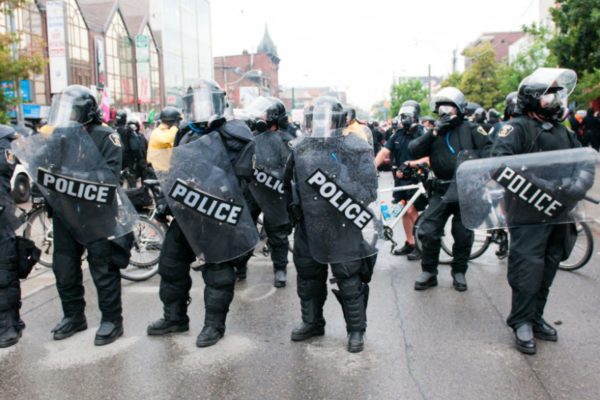Police violence against unarmed Black people is as predictable as the rising and setting of the sun. With the trial of Derek Chauvin taking central stage in the news, it seems unfathomable that additional high-profile incidents of police violence would take place. However, that is exactly what has happened.
First, we hear that a Black and Latino U.S. Army officer, 2nd Lt. Caron Nazario, had guns pointed at him, was pepper sprayed and then pushed to the ground during what should have been a routine traffic stop in Virginia. And then, in a cruel twist of irony, while justice is being sought for the killing of George Floyd, 20-year-old Daunte Wright was “accidentally” shot and killed by a Minnesota police officer during a traffic stop.
As a result, there have been increased calls for police reform. One goal of police reform is mandatory de-escalation training. Thirty-four states currently do not require de-escalation training for all officers. It is probably no coincidence that Philando Castile, George Floyd and Daunte Wright were killed in a state with no mandatory de-escalation training.
But although de-escalation training is thought to offer one of the best paths toward reducing violent police encounters, whether the training actually works is another story. Evidence is mixed. As a psychologist who has provided de-escalation training to law enforcement, I recognize both the promise and limitations of this training.
Five years ago I co-authored an op-ed arguing that police training should focus not only on de-escalation of conflict, but also the reprogramming of the automatic fear response that some police officers have toward Black men.
It does not matter whether Black men are engaging in lawful behavior or allegedly criminal behavior. Black men are still viewed as inherently more dangerous than men from other racial backgrounds. The pepper spraying of Nazario is consistent with a study by the National Bureau of Economic Research that found in nonlethal uses of force, Black people are more likely to experience being handcuffed without arrest, pepper-sprayed, or pushed to the ground by an officer.
It is hard to decouple the dynamics of race from police work. Yet, in the de-escalation training I have provided, I have found that some in law enforcement have a difficult time even acknowledging that a racial implicit bias exists.
One of the training objectives of the de-escalation training is to assess the effectiveness of police tactics. I provide several different real scenarios for the officers to analyze. Discussing these scenarios has proved invaluable in providing insight into the culture and psychology of policing.
Many times, I have been encouraged by the responses of the cadets, who often exhibit the insight and judgment we all want to see among police. I have also witnessed some of the new cadets being socialized by senior officers who tout their experience with the purpose of educating them while sometimes squelching their humane instincts.
Out of an abundance of caution, the senior officer’s message is clear: In certain situations, it is better to respond aggressively and deal with the consequences later than the alternative, where a delayed response to a volatile situation can end up costing a police officer’s life.
That is a difficult, almost impossible message to counteract. De-escalation training cannot counter an officer’s basic instincts to survive, particularly when this is the predominant messaging of police culture.
The primary emotion driving the behavior of police in violent interactions is fear. Officers are afraid that when they leave their homes each day for work, there is the possibility they might not return. I start de-escalation training by acknowledging how dangerous their job is and telling the officers that the training is important because we want to protect the well-being of both the public and the officers.
One of the most important lessons of the training is understanding the difference between fear and danger. Experiencing fear does not always mean that a situation is dangerous. Police violence against Black people will never end as long as police continue to fear Black men. Reprogramming the automatic fear response toward Black men is a societal problem that has to be the focus of any meaningful de-escalation training if systemic change in policing is going to occur.
Kevin Cokley is the Oscar and Anne Mauzy Regents Professor of Educational Research and Development and director of the Institute for Urban Policy Research and Analysis at The University of Texas at Austin. He is also a fellow of the University of Texas System Academy of Distinguished Teachers and a Distinguished Member of the Association of Black Psychologists.
A version of this op-ed appeared in USA Today.




